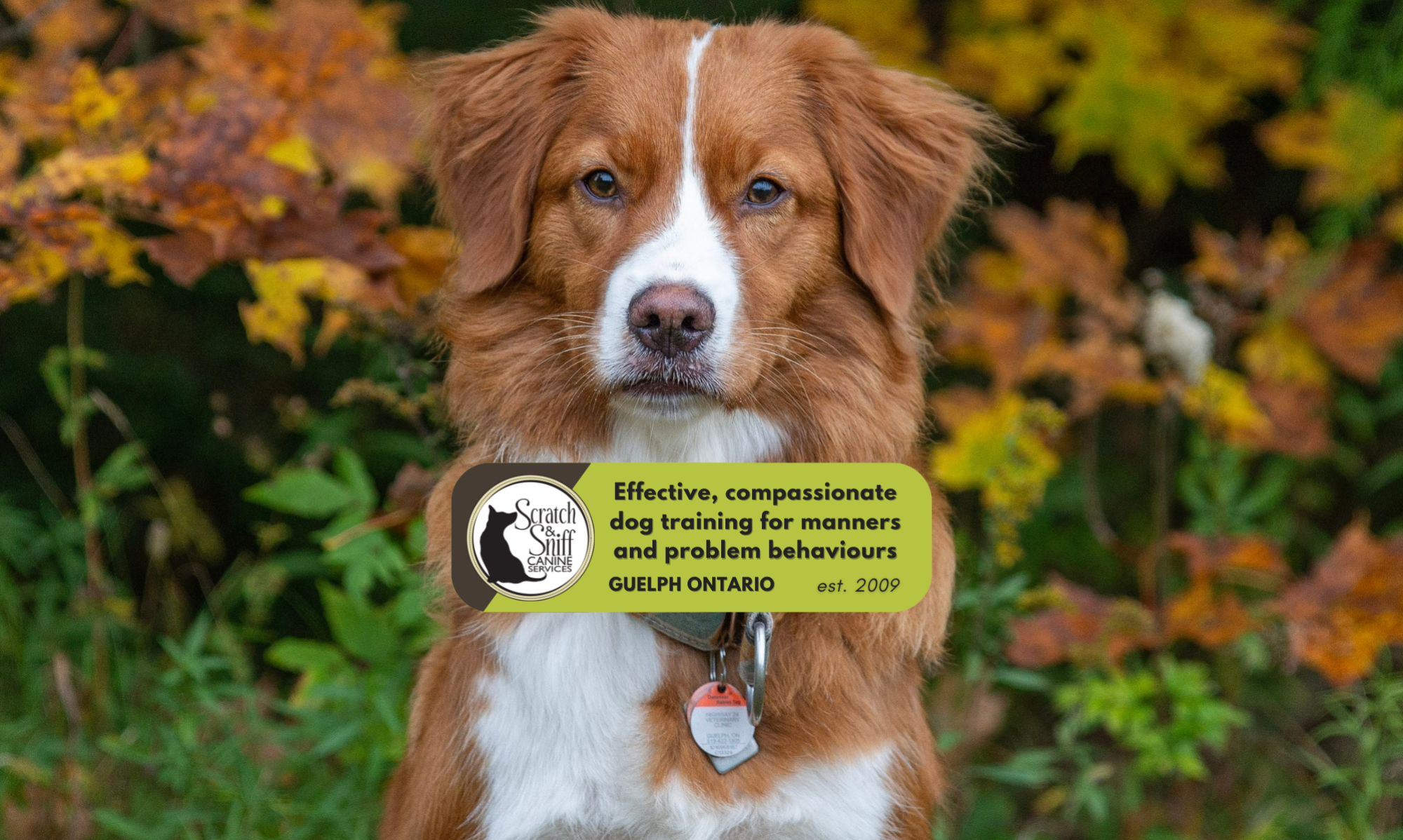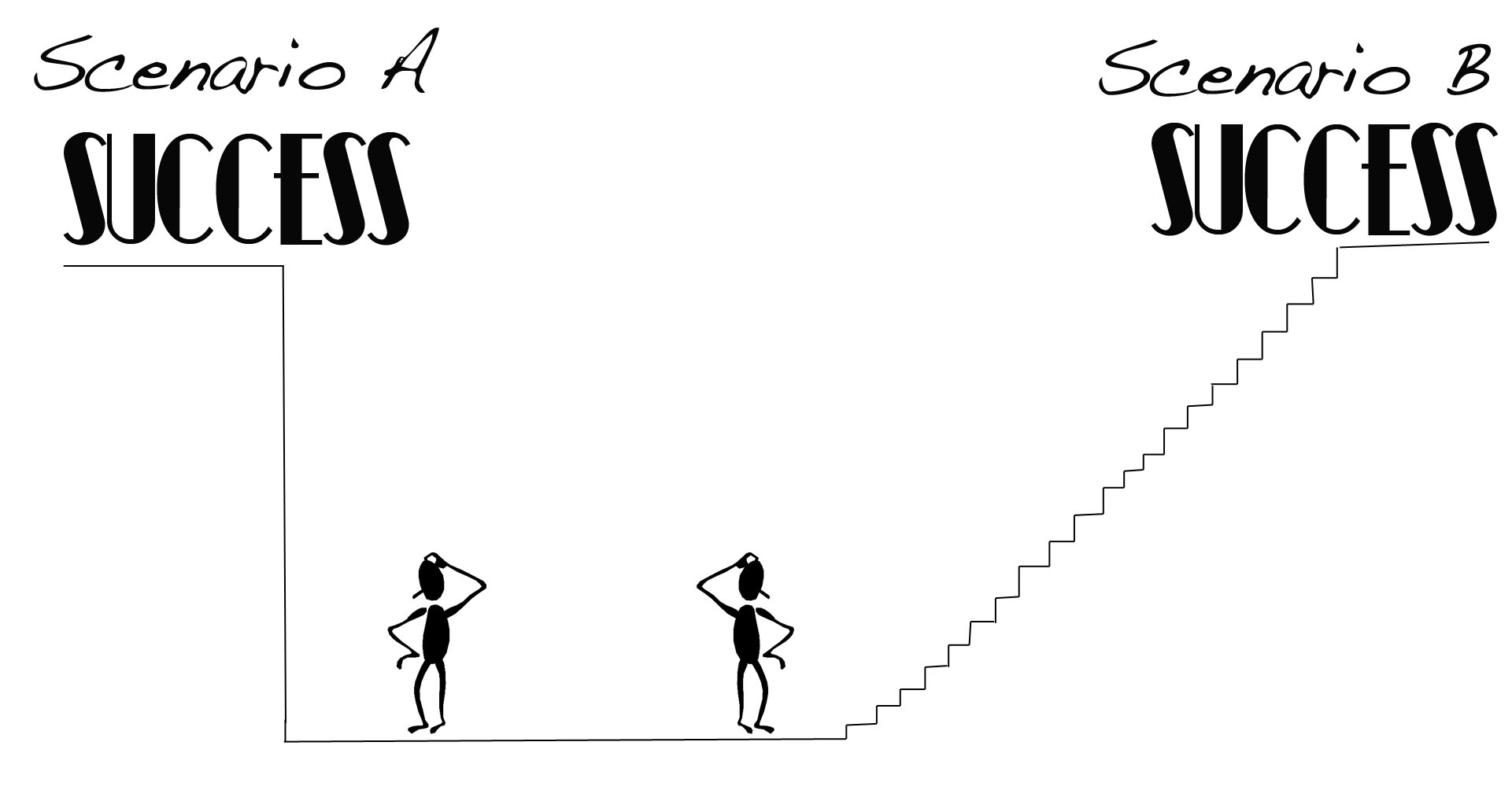A young woman came to me with her German Shepherd, Wheels. At less than a year old, Wheels had already bitten a half dozen times, with increasing severity. Wheels’s owners called up her breeder to seek help and express concern at his behaviour. Her breeder told her, “Wheels just needs to learn to stay and heel, if you teach him better obedience he won’t bite.”
This ill-conceived advice is ineffective, at best. At worst, it’s downright dangerous.
Obedience training is like woodworking: taught properly, it’s enjoyable, enriching, and has some useful results (a pretty table leg, a dog who walks politely).
Behaviour modification is like therapy. The objective is to manage and resolve deep-seated issues like anxiety and depression. Carving a nice table leg is of minimal benefit!
Just as you wouldn’t sit down with your woodworking instructor to talk about past traumas and current struggles, dogs in need of behaviour modification work can’t fully benefit from obedience training. Wheels needed a very different approach.
Understanding the difference between behaviour modification and obedience lies in understanding the mechanisms through which animals learn. Consequences are critical to learning, but we often place too heavy an emphasis on them and don’t fully understand how they function. Consequences are defined by their results – in other words, if you attempt to punish a dog and the dog continues to do the behaviour you intend to stop, you’re not actually punishing the behaviour! Whatever you’re doing as “punishment” – shouting, collar corrections, pinning the dog – is likely scary or painful, yet the dog isn’t making the necessary correlation for it to be an actual punishment.
Obedience training is based heavily in consequences. Obedience training that is enriching and valuable for a dog is based in positive reinforcement, such as dispensing food or toys or providing access to something your dogs wants as a reward. There is no punishment. However obedience training’s value is limited by its specific focus on the dog’s behaviour – whether to reinforce “good” behaviour or punish ”bad.”
Understanding how behaviour fulfills an emotional need is critical to assessing problem behaviours and assembling an appropriate training plan. All this rests primarily on how associations are formed and, most importantly, understanding this as a largely unconscious and uncontrollable process. Behaviour that is born of emotional turmoil is not behaviour the dog can easily control, and thus is not subject to “obedience training.”
This explains why Wheels can have excellent leash manners when walking down the street with no other dogs around, but when he sees a dog he barks, lunges, and drags his owner down the street and continues to do so even after the other dog is long gone.
Wheels is triggered to an uncomfortable emotional high by the sight of the other dog, and even after the dog is gone his sympathetic nervous system remains engaged in a “fight or flight” response. This leash pulling may look like an obedience issue, but really it’s a much deeper issue.
A woodworking instructor can help you detail your table leg just so, but she can’t help you overcome OCD or an addiction. Woodworking can also be an enjoyable hobby to help you de-stress, but it is not the root of a therapeutic approach. Obedience training can help an owner give their dog valuable structure, but it does not, in and of itself, resolve behaviour problems.
A behaviour consultant, just like a therapist, understands how behaviour is a reflection of an emotional state as well as the intricacies of how that emotional state is reflected in an animal’s behaviour. Just like a therapist recommending woodworking as a hobby, a behaviour consultant may use obedience trained with positive reinforcement as a secondary strategy to get to the emotional root of the problem, but that will not be the sum total of the training.
Rather than focusing on stay and heel with Wheels’s owner, we focused on developing his ability to emotionally self-regulate in the presence of dogs and implemented strategies to help him recover after the turmoil of encountering a dog, creating a relaxed, calm, and positive association, and cultivated a sense of safety. We didn’t punish any “bad” behaviour; instead we got to the root of the problem behaviour through changing Wheels’s emotional state and associations with other dogs.
Do you need help with your dog? Let us know!

